2013 Day 2 Conference Overview
by
Terry and Kathy Sullivan
Session 2.1
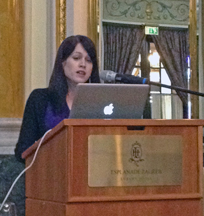 Appellation to Marketing Tool: Branding Nova Scotia’s Emerging Wine Region
Appellation to Marketing Tool: Branding Nova Scotia’s Emerging Wine Region
The first session attended was presented by Lesley Trites titled “Appellation to Marketing Tool: Branding Nova Scotia’s Emerging Wine Region.” Lesley gave an overview of the locations of wine regions in Canada and Nova Scotia in specific. Most of the province’s vineyards and wineries are located in the Annapolis Valley Region. Nova Scotia’s wineries are faced with challenges attracting wine tourists. A new effort to brand the appellation, though may prove to be a great marketing tool.
The appellation Tidal Bay does not refer to a geographical area but rather to Nova Scotia as a whole since all the province is affected by the tides. The tag line for the marketing of Tidal Bay is “Nova Scotia in a glass.” Wineries that use Tidal Bay on their labels must meet strict standards for their wines. The marketing of the appellation seems to be an early success. People visit the wineries and ask for Tidal Bay wines.
Offering the Perfect Wine Tourism Package
Tom Plant from WINEormous in California presented “Offering the Perfect Wine Tourism Package.” Tom was enthusiastic about making connections with winery owners and winemakers as well as having a relationship with the local lodging facilities and restaurants. Tom noted, that “it’s all about forming relationships.” He also mentioned that wineries should create and allow special memories to be made. He related the story, with a photo, of a young woman put into a large container to stomp grapes. It was an experience that she will never forget. According to Tom, “Experience makes such a difference.”
Session 2.2
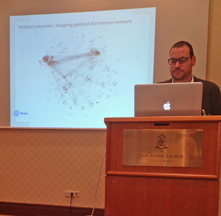 Wine Tourism, Architecture & Territory
Wine Tourism, Architecture & Territory
Relja Ferusic and Carles Sala, architects from Barcelona, Spain presented “Wine Tourism, Architecture & Territory.” Their session involved the structure of wineries and how that influences other fields including: marketing, economy, landscape and more. Using numerous slides with quality diagrams they explained how the winery facility influences culture. They also noted that wineries are closely related to the environment and that wine architecture should include sustainability.
Undiscovered to Discovered: Bring Your Wine Region into Focus
Thea Dwelle and Liza Swift offered an entertaining presentation titled “Undiscovered to Discovered: Bring Your Wine Region into Focus.” They offered practical advice for using Twitter, Facebook and Pinterest as a vehicle for research and engagement. They wove together how social media was used to explore two wine regions, Baja California in Mexico and Okanagan Valley in British Columbia, Canada.
Session 2.3
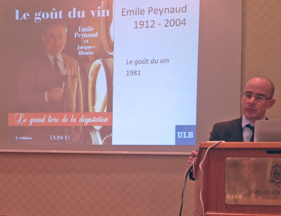 Wine Tourism. Case study with New Architectures in Bordeaux and Rioja
Wine Tourism. Case study with New Architectures in Bordeaux and Rioja
The speaker for this session was Fabrizio Bucello from Brussels, Belgium. He has studied the new architecture in Spain and France specifically Rioja and Bordeaux. He noted that in recent years more expensive winery facilities designed by renowned architects are being built. Bucello’s question was, “How can we explain the interest of some of the greatest wineries, part of the greatest wine regions, in asking some of the most world renowned and expensive architects to design their new buildings?” He mentioned that in Bordeaux the architecture of the winery is considered to be for the growth classification. The winery facility is also important for visitors creating a sensory experience.
Creating the Wow Factor in Winery Visits
Diane Letulle spoke about “Creating the Wow Factor in Winery Visits.” The presentation examined the winery visit. Diane posed the question, what are wineries doing to have a wow factor? She suggested that wineries can explore what to do with children such as offer grape juice. Wineries should considered that some wine tourists are tired of seeing another stainless steel tank, barrel and bottling line. The winery should consider other things to show tourists such as how to use a refractometer. Wineries can have a small museum section or even a collection of things such as corkscrews.
Diane cautioned wineries that take people into a part of the winery that appears dirty and not clean. A winery doesn’t want to give a negative impression.
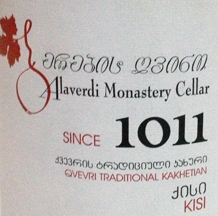
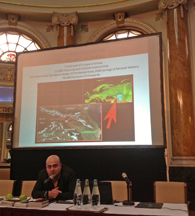 Session 2.4
Session 2.4
Georgia - Cradle of Wine
A delegation from Georgia discussed the wine regions in that country and the upcoming 2014 International Wine Tourism Conference held next March in Tbilisi. Wine has been made in Georgia for thousands of years and there are over 500 indigenous grapes in the country. Conference attendees had the opportunity to taste a few wines from Georgia.
Written March 2013
